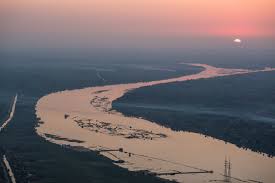The Nile River, which is the longest river in the world, is located in Africa and stretches for a total length of up to 6,650 kilometers. In this article, we will provide information about the characteristics of the Nile River, the countries it passes through, and its impact on societies.
The Nile River flows through several countries including Burundi, Rwanda, Tanzania, Uganda, Ethiopia, South Sudan, Sudan, and Egypt. It is divided into two main branches: the White Nile and the Blue Nile. The White Nile originates from the Great Lakes region in Equatorial Africa, while the Blue Nile starts from Lake Tana in Ethiopia. These two branches converge at the capital of Sudan, Khartoum, forming the main flow of the Nile River.
The length and water flow of the Nile River have significant economic and social impacts in the region, particularly in terms of agriculture, transportation, and energy production. The river serves as a major water source for the agricultural sector, contributing to the expansion of irrigated farmlands and increased productivity in countries like Sudan and Egypt. Additionally, the presence of dams and hydroelectric power plants along the river provides substantial potential for energy generation.
The ecosystem of the Nile River also holds great importance. The river and its surroundings support a diverse range of plant and animal species. It serves as a habitat for various wildlife including otters, crocodiles, water birds, and large mammals. Moreover, the wetlands and marshes along the river play a crucial role in the conservation of migratory bird routes and aquatic ecosystems.
However, the sustainability and preservation of the Nile River face significant challenges. Factors such as climate change, water pollution, excessive agriculture, and dam construction pose threats to the ecological balance of the river. Therefore, international cooperation and environmental policies are necessary for the sustainable management and conservation of the Nile River basin.
In conclusion, the Nile River is the longest river in the world, with immense significance in Africa. Its economic and social impacts are substantial, particularly in terms of agriculture, transportation, and energy production. Additionally, the river’s ecosystem supports a rich biodiversity. However, efforts must be made to ensure the sustainable management and conservation of the Nile River in the face of various challenges.





















Add Comment